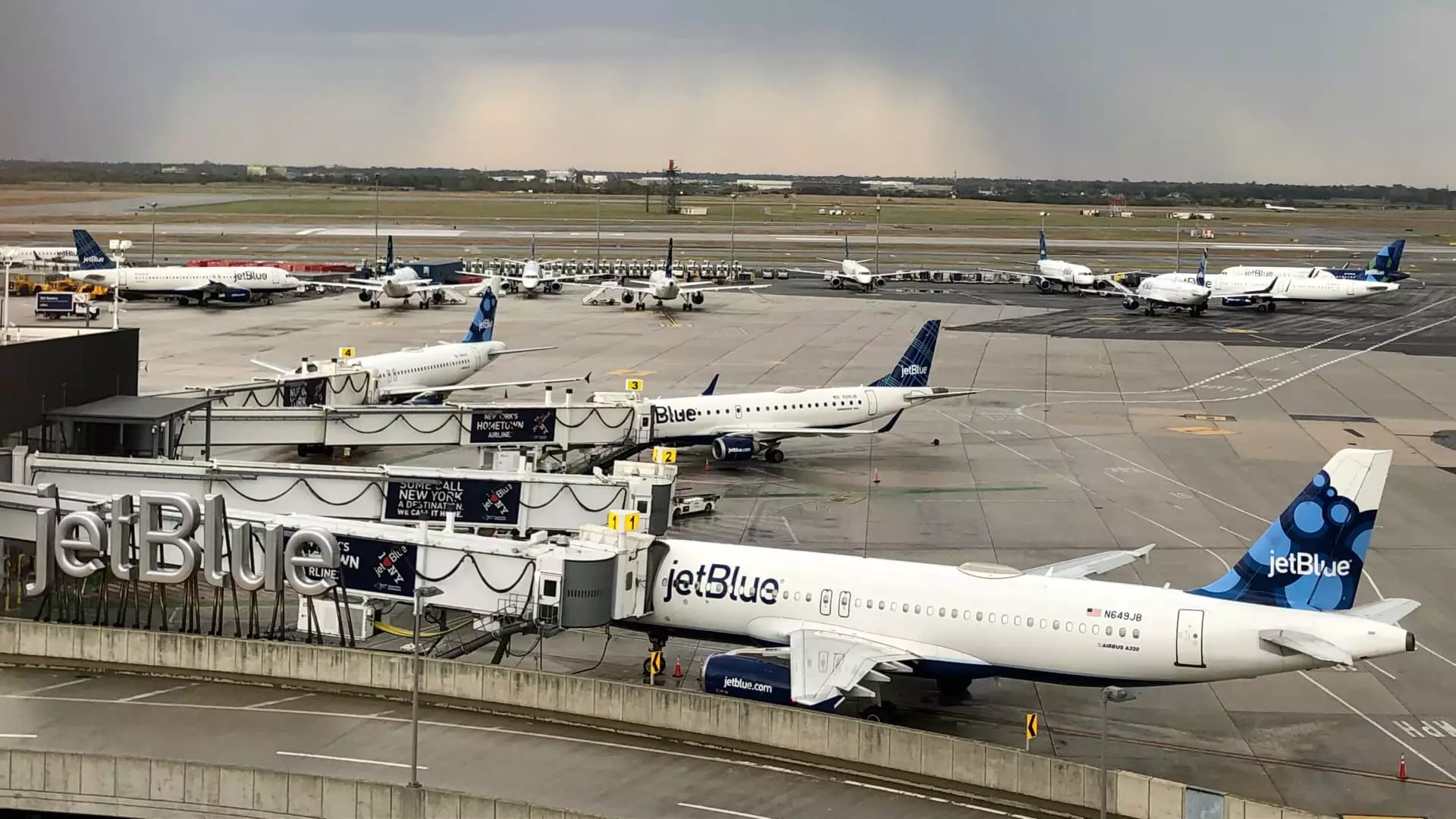In a strategic pivot that signals its ambition to attract high-spending travelers, JetBlue Airways has announced plans to open its first airport lounges in more than 20 years of operation. This decision not only reflects a significant shift in the airline’s approach but also highlights a growing trend among low-cost carriers to enhance their service offerings. Set to launch in New York by late 2024, followed by a subsequent opening in Boston, JetBlue’s lounges aim to provide an elevated travel experience for its most discerning customers.
JetBlue’s move is a calculated response to the competitive landscape of the airline industry, which has become increasingly focused on high-revenue customers. Airlines like Delta, United, and American have reaped substantial financial benefits from premium credit card partnerships and exclusive lounge access. By implementing a similar strategy, JetBlue appears poised to tap into a lucrative market segment that values premium amenities and a more comfortable travel environment.
The lounges will not only serve as havens for passengers but will also enhance JetBlue’s reputation as a commuter-friendly airline. Boasting an impressive 8,000-square-foot lounge in Terminal 5 at New York’s JFK and an 11,000-square-foot facility at Boston Logan, JetBlue is investing in infrastructure that prioritizes customer comfort and convenience.
Access to the new lounges will primarily be granted to customers traveling in JetBlue’s Mint business class for trans-Atlantic flights, high-level frequent flyers, and holders of the upcoming premium credit card in partnership with Barclays. This structured access helps JetBlue manage the potential overcrowding that can plague airport lounges and ensures that guests enjoy a premium experience.
Jayne O’Brien, JetBlue’s head of marketing and customer support, emphasized the importance of a thoughtful rollout of these lounges. This reveals a clear intention to cultivate an exclusive environment while also maintaining the quality of service that customers expect. With features such as cocktail and espresso bars, light bites, and designated workspaces, JetBlue is aligning itself with the growing consumer demand for multi-functional travel experiences.
Amid rising operational costs and the need for profitability, JetBlue’s recent operational adjustments, including route cuts and aircraft deferrals, reveal the company’s commitment to optimizing its resources. The introduction of lounges comes predicated on a desire to not only boost customers’ satisfaction but also to enhance revenue streams, thereby providing a cushion against economic headwinds.
By redefining the travel experience for higher-tier passengers, JetBlue is likely aiming to achieve a dual objective: attracting more affluent travelers while ensuring consistent revenue flow. This strategy aligns seamlessly with industry trends where discerning travelers increasingly seek more than just a seat on a plane.
JetBlue’s lounge introduction isn’t occurring in a vacuum; it reflects a broader industry trend of airlines enhancing the allure of their premium offerings. Airlines are not only investing in their existing products, such as lounges and business classes, but are also embracing innovative services to create an appealing overall customer experience. Delta, for instance, has made substantial changes by scaling back access to its Sky Clubs while introducing dedicated lounges for premium travelers. Similarly, American and United airlines are in the fray with their exclusive amenities.
These shifts also resonate with the credit card sector, where partnerships with lounges are becoming a strong selling point for institutions like American Express and Chase. By positioning itself among these giants, JetBlue is establishing its presence within a market increasingly influenced by those who seek exclusive experiences funded by loyalty points and premium credit perks.
JetBlue’s decision to open airport lounges is a pivotal step toward redefining its image from a low-cost airline to a competitive player in the premium market segment. By offering enhanced services tailored for high-spending customers, JetBlue is not only seeking to innovate its brand experience but also to solidify its market position. The move is undoubtedly ambitious but is emblematic of the evolving nature of air travel — where comfort, convenience, and exclusivity are fast becoming essential components of the customer journey. As JetBlue implements these changes, it will be crucial for the airline to maintain a delicate balance between accessibility and exclusiveness, ensuring that it meets the expectations and demands of its diverse customer base.


Leave a Reply